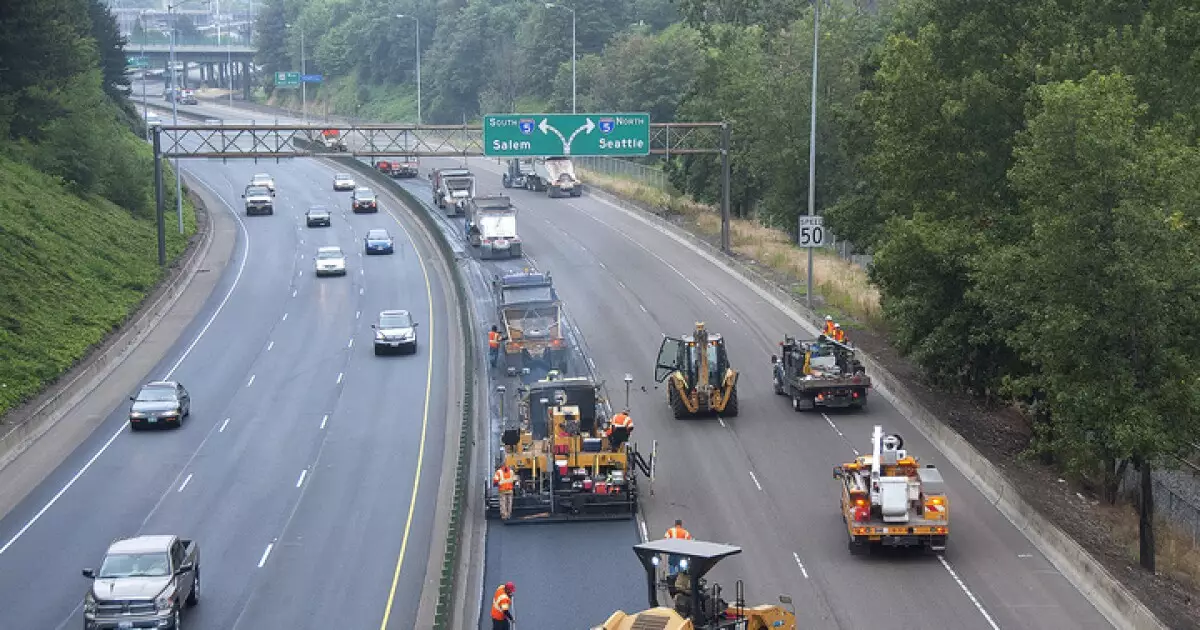Oregon is facing a colossal decision as a state transportation bill, HB 2025, passes through the legislative process. With a staggering price tag of $14.6 billion in tax and fee increases over the next decade, the potential fallout from this initiative could have lasting effects on both the state’s infrastructure and its citizens’ wallets. Proponents assert that this funding will revitalize the state’s decaying roads and bridges while promising greater accountability for how the Oregon Department of Transportation (ODOT) spends taxpayer money. However, with significant portions of the electorate opposed to the bill, we must analyze the implications and dynamics at play.
Revenue Versus Responsiveness
At the heart of this debate lies a fundamental question: Can ODOT genuinely enhance infrastructure simply by raising taxes? Proponents, like Sen. Chris Gorsek, tout the bill as a “transformative investment” in Oregon’s future, positioning it as a necessary step for repairing worn-down roads and bridges. Yet, this assertion raises eyebrows given the skepticism surrounding government spending. Historical precedence shows that increased funding does not always correlate with better services, and Oregonians are right to be cautious. Many feel that sufficient taxes are already being collected, and what is needed is a more efficient and responsive approach to fund allocation.
By insisting upon another tax hike, lawmakers ignore the overarching sentiment of the populace. A recent poll indicates that approximately 61% of Oregonians oppose this bill. Frustration over potholes and unplowed roads can easily be mitigated through improved operational efficiency, rather than continually asking residents to dig deeper into their pockets.
The Accountability Mirage
The promise of increased accountability in spending is another troubling facet of the bill. How can Oregon citizens trust that their hard-earned dollars will be used wisely when the state has faced numerous scandals regarding fund mismanagement in the past? The state’s recent emergency funding episode, which required $19 million to address inadequate snow removal, raises significant doubts. Instead of treating the funding as a reactive measure, why isn’t there a proactive strategy in place?
By incorporating a series of public forums—though commendable—lawmakers may be undermining the very foundation of accountability. Hearing public grievances in official sessions may create the illusion of responsiveness, but it does not guarantee actionable solutions. Citizens are witnessing their government passively collecting feedback while ultimately disregarding the prevailing discontent. This approach may foster distrust, not collaboration.
Political Maneuvering and Majority Power
The recent actions by Senate President Rob Wagner are emblematic of a troubling trend within politics. By removing a dissenting voice from the committee, Wagner effectively silenced opposition in favor of pushing the bill through the process. While it may be legal to engage in such political maneuvers, it severely undermines the democratic process. This method of governance engenders animosity between party lines and leaves a scar on the image of elected officials.
When a party in power employs these tactics, it creates an illusion of consensus that often disregards the voices of the minority. In this case, the GOP proposed a viable alternative that would ensure necessary transportation improvements without tax increases. Exchanging this constructive dialogue for a path of least resistance perpetuates the notion that political maneuvers take precedence over genuine governance.
The Public’s Dissent: An Opportunity Ignored
Lawmakers may believe that they are fulfilling their duties by introducing legislation that addresses pressing issues; however, the ongoing public outcries reflect a broader discontent with how they perceive their government. When citizens feel unheard, their engagement in the democratic process wanes, confirming a growing rift between governments and constituents. Failure to acknowledge the 61% dissent against this bill signifies a lost opportunity for lawmakers to genuinely engage with their electorate and earn back trust.
As Oregon struggles to define its transportation infrastructure funding, the lack of respect for public opinion serves as a red flag for those concerned about accountability and government efficiency. This struggle compels citizens to advocate for their financial prudence in ways that resonate beyond mere legislation. It implicates a growing expectation that politics should work for the people, rather than against them—something that Oregon’s leaders would do well to remember.

